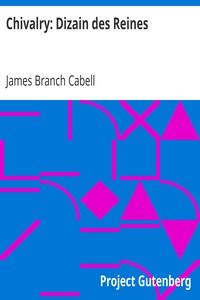|
|
Read this ebook for free! No credit card needed, absolutely nothing to pay.Words: 57622 in 13 pages
This is an ebook sharing website. You can read the uploaded ebooks for free here. No credit cards needed, nothing to pay. If you want to own a digital copy of the ebook, or want to read offline with your favorite ebook-reader, then you can choose to buy and download the ebook.

: Forty Years in South China: The Life of Rev. John Van Nest Talmage D.D. by Fagg John Gerardus - Missions China; Talmage John Van Nest 1819-1892@FreeBooksTue 06 Jun, 2023 John Van Nest Talmage was born at Somerville, New Jersey, August 18, 1819 He was the fourth son in a family of seven brothers and five sisters. The roots of the Talmage genealogical tree may be traced back to the year 1630, when Enos and Thomas Talmage, the progenitors of the Talmage family in North America, landed at Charlestown, Massachusetts, and afterwards settled at East Hampton, Long Island. Dr. Lyman Beecher represents the first settlers of East Hampton as "men resolute, enterprising, acquainted with human nature, accustomed to do business, well qualified by education, circumspect, careful in dealing, friends of civil liberty, jealous of their rights, vigilant to discover, and firm to resist encroachments; eminently pious." In 1725 we find Daniel Talmage at Elizabethtown, New Jersey. Daniel's grandson, Thomas, during the years between 1775 and 1834 shifts his tent to Piscataway, New Jersey, thence to New Brunswick, thence to Somerville, where the stakes are driven firmly on a farm "beautiful for situation." Thomas Talmage was a builder by trade, and erected some of the most important courthouses and public edifices in Somerset and Middlesex Counties. He was active in the Revolutionary war, holding the rank of major. It was said of him, "His name will be held in everlasting remembrance in the churches." He was the father of seven sons and six daughters. The third son, David T., the father of John Van Nest Talmage, was born at Piscataway, April 21, 1783. He was married to Catharine Van Nests Dec. 19, 1803. David T. Talmage was rather migratory in his instincts. The smoke of the Talmage home now curled out from a house at Mill stone, now from a homestead near Somerville, then from Gateville; then the family ark rested for many years on the outskirts of Somerville and finally it brought up at Bound Brook, New Jersey. Though the family tent was folded several times, it was not folded for more than a day's wagon journey before it was pitched again. The places designated arc all within the range of a single New Jersey county. In 1836 David T. Talmage was elected a member of the State Legislature and was returned three successive terms. In 1841, he was chosen high sheriff of Somerset County. Four of his sons entered the Christian ministry, James R., John Van Nest, Goyn, and Thomas De Witt. James R., the senior brother, rendered efficient service in pastorates at Pompton Plains and Blawenburgh, New Jersey, and in Brooklyn, Greenbush, and Chittenango, New York. He received the degree of Doctor of Divinity from Rutgers College, New Jersey, in 1864. John Van Nest gave his life to China. Goyn, a most winsome man and eloquent preacher, ministered with marked success to the churches of Niskayuna, Green Point, Rhinebeck, and Port Jervis, New York, and Paramus, New Jersey. He was for five years the Corresponding Secretary of the Board of Domestic Missions of the Reformed Church. Rutgers College honored herself and him by giving him the degree of Doctor of Divinity in 1876. Thomas De Witt, the youngest son, still ministers to the largest church in Protestant Christendom. What a river of blessing has flowed from that humble, cottage well-spring. The wilderness and the parched land have been made glad by it. The desert has been made to rejoice and blossom as the rose. The courses thereof have gone out into all the earth, and the tossing of its waves have been heard to the end of the world. In November, 1865, Dr. T. De Witt Talmage preached a sermon on "The Beauty of Old Age" from the words in Eccles. xii. 5, "The Almond Tree shall flourish." It was commemorative of his father, David T. Talmage. He says: "I have stood, for the last few days, as under the power of an enchantment. Last Friday-a-week, at eighty-three years of age, my father exchanged earth for heaven. The wheat was ripe, and it has been harvested. No painter's pencil or poet's rhythm could describe that magnificent sun setting. It was no hurricane blast let loose; but a gale from heaven, that drove into the dust the blossoms of that almond tree. "There are lessons for me to learn, and also for you, for many of you knew him. The child of his old age, I come to-night to pay an humble tribute to him, who, in the hour of my birth, took me into his watchful care, and whose parental faithfulness, combined with that of my mother, was the means of bringing my erring feet to the cross, and kindling in my soul anticipations of immortal blessedness. If I failed to speak, methinks the old family Bible, that I brought home with me, would rebuke my silence, and the very walls of my youthful home would tell the story of my ingratitude. I must speak, though it be with broken utterance, and in terms which seem too strong for those of you who never had an opportunity of gathering the fruit of this luxuriant almond tree. "First. In my father's old age was to be seen the beauty of a cheerful spirit. I never remember to have heard him make a gloomy expression. This was not because he had no conception of the pollutions of society. He abhorred everything like impurity, or fraud, or double-dealing. He never failed to lift up his voice against sin, when he saw it. He was terrible in his indignation against wrong, and had an iron grip for the throat of him who trampled on the helpless. Better meet a lion robbed of her whelps than him, if you had been stealing the bread from the mouth of the fatherless. It required all the placidity of my mother's voice to calm him when once the mountain storm of his righteous wrath was in full blast; while as for himself, he would submit to more imposition, and say nothing, than any man I ever knew. "But while sensitive to the evils of society, he felt confident that all would be righted. When he prayed, you could hear in the very tones of his voice the expectation that Christ Jesus would utterly demolish all iniquity, and fill the earth with His glory. This Christian man was not a misanthrope, did not think that everything was going to ruin, considered the world a very good place to live in. He never sat moping or despondent, but took things as they were, knowing that God could and would make them better. When the heaviest surge of calamity came upon him, he met it with as cheerful a countenance as ever a bather at the beach met the incoming Atlantic, rising up on the other side of the wave stronger than when it smote him. Without ever being charged with frivolity, he sang, and whistled, and laughed. He knew about all the cheerful tunes that were ever printed in old 'New Brunswick Collection,' and the 'Strum Way,' and the sweetest melodies that Thomas Hastings ever composed. I think that every pillar in the Somerville and Bound Brook churches knew his happy voice. He took the pitch of sacred song on Sabbath morning, and lost it not through all the week. I have heard him sing plowing amid the aggravations of a 'new ground,' serving writs, examining deeds, going to arrest criminals, in the house and by the way, at the barn and in the street. When the church choir would break down, everybody looked around to see if he were not ready with Woodstock, Mount Pisgah, or Uxbridge. And when all his familiar tunes failed to express the joy of his soul, he would take up his own pen, draw five long lines across the sheet, put in the notes, and then to the tune that he called 'Bound Brook' begin to sing: 'As when the weary trav'ler gains The height of some o'erlooking hill, His heart revives if, 'cross the plains, He eyes his home, tho' distant still: Free books android app tbrJar TBR JAR Read Free books online gutenberg More posts by @FreeBooks
: Experimental Determination of the Velocity of Light Made at the U.S. Naval Academy Annapolis by Michelson Albert A Albert Abraham - Light Speed@FreeBooksTue 06 Jun, 2023

: Chivalry: Dizain des Reines by Cabell James Branch Rascoe Burton Author Of Introduction Etc - Historical fiction; Fantasy fiction; Middle Ages Fiction Fantasy@FreeBooksTue 06 Jun, 2023
|
Terms of Use Stock Market News! © gutenberg.org.in2025 All Rights reserved.






